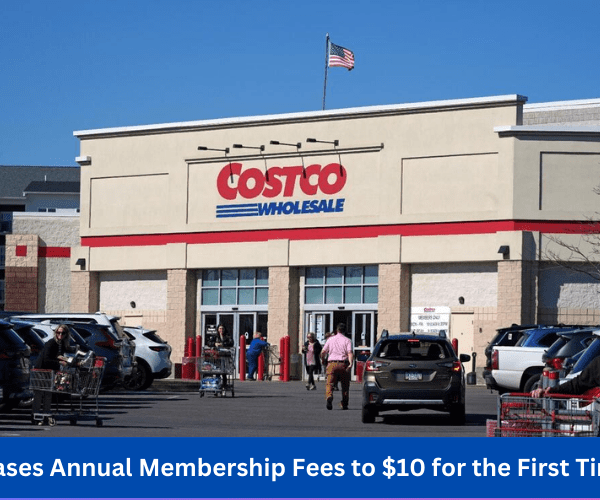
E-commerce personalization goes beyond merely displaying relevant products or sending automated emails. It aims to create a seamless and enjoyable shopping experience that makes customers feel valued and understood. By analyzing customer data such as browsing history, purchase patterns, demographics, and interests, businesses gain valuable insights into individual preferences and can use this information to personalize every step of the customer journey.
Through e-commerce, businesses can present customers with products and recommendations that align with their tastes and interests. Imagine visiting an online store where the homepage showcases items tailored specifically to your style and preferences, making it easier for you to discover new products you’ll love. Moreover, personalized marketing messages, such as targeted emails with exclusive offers, demonstrate that the business understands your needs and values your loyalty.
Defining E-commerce Personalization
At its core, e-commerce personalization revolves around the idea of creating a customized online shopping journey for each individual customer. It involves using valuable customer data and cutting-edge technologies to deliver tailored experiences that cater to their unique preferences and behaviors. By harnessing the power of data analytics and artificial intelligence, businesses can provide personalized product recommendations, deliver tailored marketing messages, and even customize user interfaces to meet the specific needs of each customer.
Not only does e-commerce enhance the overall customer experience, but it also has a significant impact on conversion rates and customer loyalty. When customers feel that a brand truly understands and caters to their individual needs, they are more likely to make a purchase and become repeat customers. This, in turn, leads to increased customer satisfaction, and higher engagement, and ultimately boosts sales for businesses.
Benefits of E-commerce Personalization
1. Enhanced Customer Engagement
E-commerce personalization revolutionizes the way businesses interact with their customers. By tailoring the shopping experience to individual preferences, businesses can forge more meaningful connections. When customers feel understood and valued, they are more likely to engage actively with a brand, providing valuable feedback, participating in discussions, and sharing their positive experiences with others. This heightened engagement not only strengthens the relationship between customers and businesses but also creates a sense of community and belonging.
2. Improved Conversion Rates
One of the primary objectives of any e-commerce business is to convert website visitors into paying customers. E-commerce plays a pivotal role in achieving this goal. When customers encounter a website or online store that caters to their needs and preferences, they are more inclined to make a purchase. By presenting personalized product recommendations, showcasing relevant offers, and streamlining the user experience, businesses significantly increase the likelihood of conversions. The more tailored and personalized the shopping experience, the higher the conversion rates, ultimately leading to greater revenue and business growth.
3. Increased Customer Loyalty
Building customer loyalty is vital for sustainable success in the highly competitive e-commerce landscape. E-commerce fosters a sense of loyalty among customers by creating memorable experiences. When customers receive personalized attention and see that a brand goes the extra mile to understand their desires and interests, they develop a strong emotional connection. This connection encourages repeat purchases and turns customers into loyal advocates for the brand. Loyal customers not only continue to support the business but also become brand ambassadors, referring others and helping expand the customer base.
4. Higher Customer Satisfaction
Customer satisfaction is the cornerstone of business success. E-commerce directly contributes to higher customer satisfaction levels by tailoring the shopping experience to individual preferences. When customers can effortlessly find the products they are looking for, receive personalized recommendations, and encounter a seamless user interface, their satisfaction soars. By eliminating unnecessary clutter and presenting a curated selection of products and content, businesses demonstrate their commitment to customer satisfaction. Satisfied customers are more likely to leave positive reviews, provide valuable feedback, and become long-term patrons of the brand.
Key Strategies for E-commerce Personalization
1. Customer Segmentation
Segmenting customers into distinct groups based on demographics, behavior, or preferences is a fundamental strategy in e-commerce. By understanding the unique characteristics and needs of each customer segment, businesses can deliver targeted and personalized experiences. Whether it’s tailoring marketing messages, recommending specific products, or adapting the website layout, segmentation allows businesses to provide relevant content and offers to specific customer groups, maximizing the impact of personalization efforts.
2. Product Recommendations
Leveraging the power of algorithms and machine learning, businesses can provide customers with highly relevant and personalized product recommendations. By analyzing customer browsing and purchase history, businesses can understand individual preferences, identify patterns, and suggest items that align with customers’ tastes. These intelligent recommendations not only simplify the decision-making process for customers but also increase the chances of cross-selling and upselling, ultimately boosting sales and enhancing the overall shopping experience.
3. Customized Content
Tailoring website content is a vital component of personalization. From landing pages to emails and product descriptions, every piece of content should resonate with the individual interests and preferences of customers. By adapting the language, imagery, and tone to match the target audience, businesses can create a more personalized and engaging experience. Customized content ensures that customers feel directly addressed, fostering a sense of connection and increasing their likelihood of making a purchase or engaging further with the brand.
4. Personalized Marketing Campaigns
Utilizing customer data effectively, businesses can create personalized marketing campaigns that resonate with individual customers. By crafting personalized emails, offers, and promotions based on customer preferences and behavior, businesses can capture attention, drive engagement, and motivate customers to take action. Personalized marketing campaigns showcase that the business understands the unique needs of each customer, making them feel valued and increasing their loyalty. These campaigns have a higher chance of success, as they are specifically designed to cater to the interests and preferences of targeted individuals.
Implementing these key strategies can significantly enhance the effectiveness of personalization efforts, leading to improved customer engagement, higher conversion rates, increased customer loyalty, and greater customer satisfaction. By embracing the power of personalization, businesses can differentiate themselves in the crowded e-commerce landscape and create memorable experiences that keep customers coming back for more.
Challenges and Considerations
1. Privacy and Data Security
In the era of e-commerce, where customer data is a valuable asset, businesses must prioritize privacy and data security. Collecting and utilizing customer data comes with a great responsibility to ensure that it is handled ethically and in compliance with relevant regulations. Safeguarding sensitive information, implementing robust data protection measures, and being transparent about data collection and usage are crucial for building trust with customers. By prioritizing privacy and data security, businesses can assure customers that their personal information is safe and instill confidence in the personalized shopping experience.
2. Balancing Automation and Human Touch
While automation and algorithms are essential for delivering personalized experiences at scale, it’s important not to lose the human touch. Striking the right balance between automated personalization and human interaction is key to maintaining an authentic customer experience. While algorithms can analyze vast amounts of data and make recommendations, the human touch adds a personal and empathetic element to the shopping journey. Businesses should find ways to incorporate human interaction, such as personalized customer support, live chat, or social media engagement, to provide customers with the assurance that there are real people behind the personalized experiences.
3. Scalability and Infrastructure
Implementing effective personalization requires a robust technology infrastructure and scalable systems. As businesses collect and process increasing amounts of customer data, they need to ensure that their systems can handle the volume efficiently. Scalable architecture and infrastructure are essential to maintain a seamless and personalized experience, even as the customer base grows. Investing in powerful servers, data storage solutions, and cloud computing capabilities can ensure that businesses are equipped to handle the demands of e-commerce personalization. Additionally, continuous monitoring and optimization of infrastructure are necessary to deliver personalized experiences seamlessly.
The Role of E-commerce Institutes
E-commerce Institutes in Lahore play a vital role in empowering individuals with the knowledge and skills needed to navigate the ever-evolving e-commerce landscape. These institutes offer comprehensive training programs, courses, and workshops that cover various aspects of e-commerce, including personalization techniques. By enrolling in these programs, professionals and businesses gain insights into the latest trends, strategies, and technologies in e-commerce personalization.
Institutes provide a platform for individuals to acquire practical knowledge and hands-on experience through interactive sessions, case studies, and real-world projects. Participants learn about customer segmentation, data analysis, personalization algorithms, and the effective implementation of personalized marketing campaigns. By understanding the intricacies of e-commerce, individuals can make informed decisions and contribute to the success of their businesses in the digital age.
In conclusion, institutes serve as knowledge hubs, enabling individuals and businesses to thrive in the dynamic world of e-commerce. Through their comprehensive programs, these institutes play a vital role in shaping the future of the e-commerce industry in Lahore and beyond.















